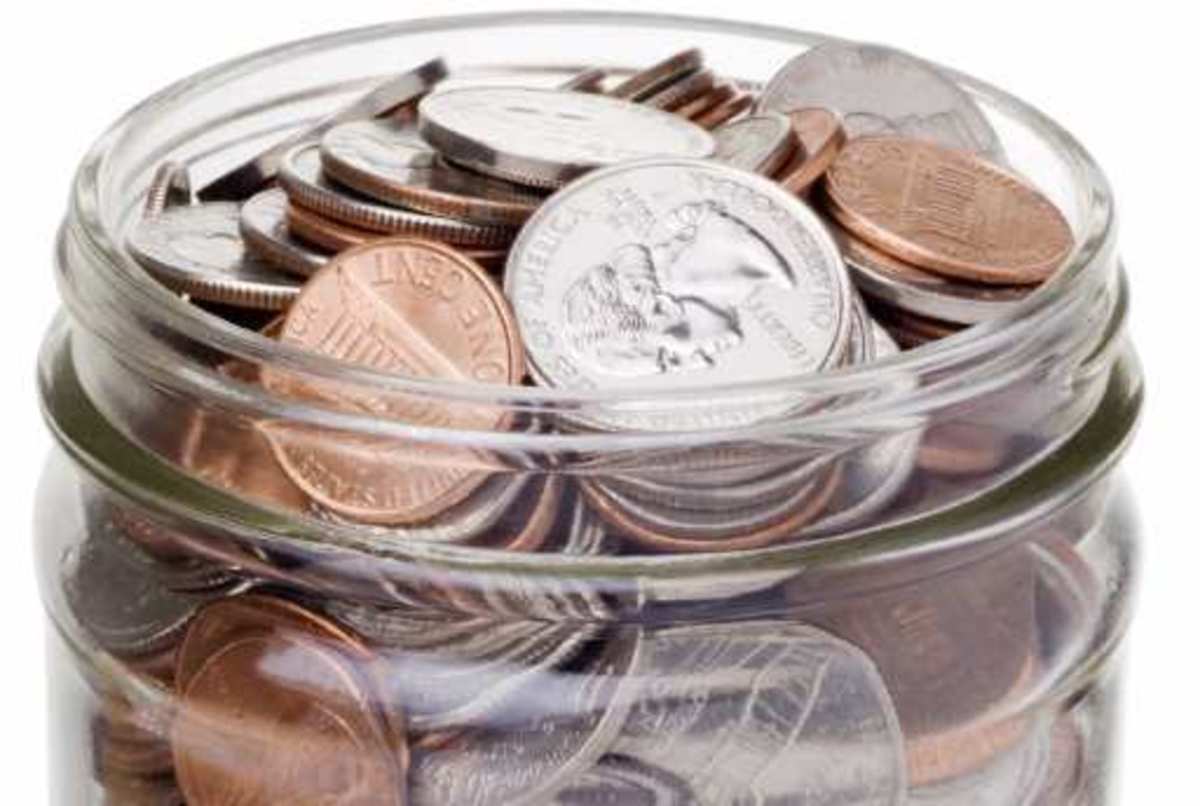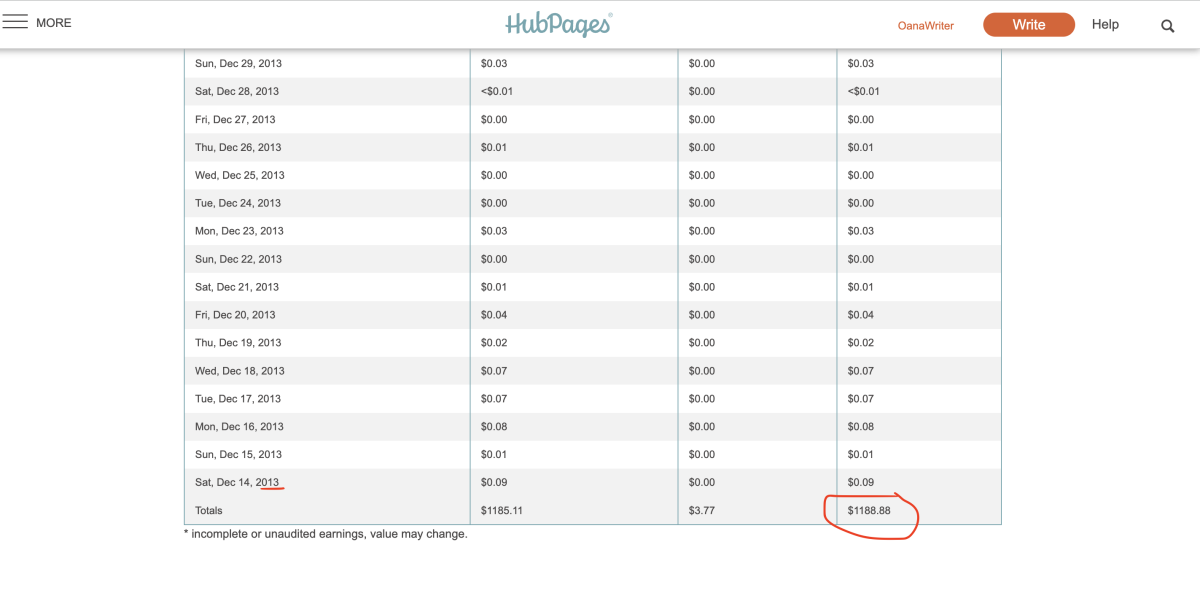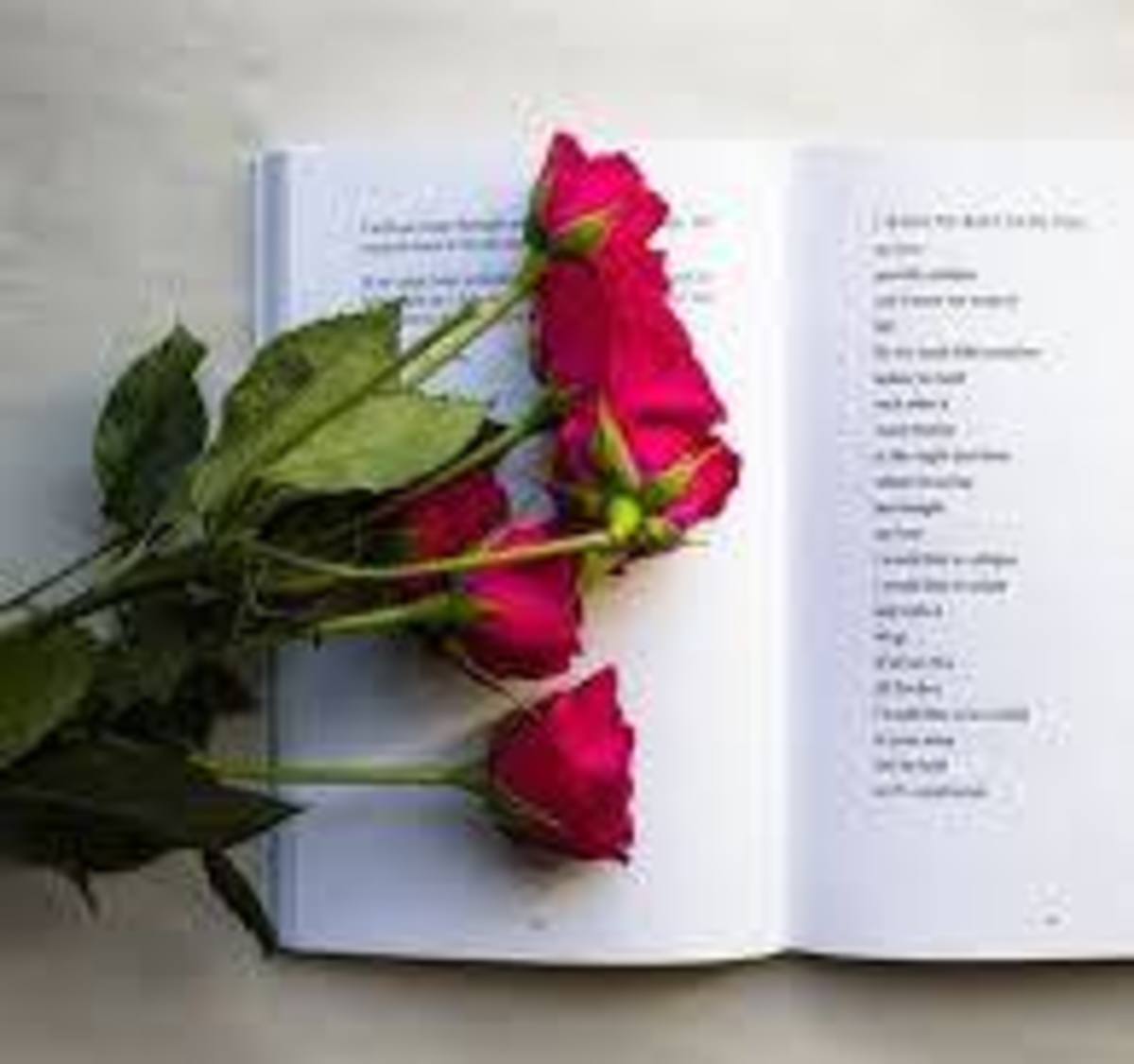How To Make Money Writing Poetry Part 1: Make Money from Your Poetry Blog
Introduction To Make Money Writing Poetry Series
Most poets assume that they cannot make money from writing poetry. Thus, they toil away expecting no monetary return for their labor. However with a little entrepreneurship and creativity you can make money from your poetry. In this hub series I share with you tips on how to make money writing poetry. All of the money making tips outlined in this hub series are free to implement, so basically I will tell you how you can make money for free the only thing you will need to invest is your time and creative energy. However, time is not really free after all you get paid to go to work and that is how you should think about your poetry if you intend to make money from it. The money making tips outlined in this hub series also involve making money online therefore, you will need access to the internet. In part one of the series I will discuss how to make money blogging and writing poetry. The other sections of the make money writing poetry series will deal with how to earn money writing poetry on HubPages and Squidoo and how to make money selling poetry products, such as poetry gifts and greeting cards. Right, now that we have the fundamentals out of the way here is part one of the hub series on how to make money writing poetry.
Section One: How to Set Up A Free Poetry Blog
As mentioned previously we are only going to use free resources. If you have money to spare then you may want to start out with a Wordpress blog and pay for hosting. However, if you are short on money then you can set up a poetry blog on Blogger.com which is free of charge. Most people are scared off from blogging by the technical aspects however, blogger.com is extremely user-friendly and you do not need any HTML skills to use it. They also have an extensive help section. I was able to set up a poetry blog with zero HTML skills so have no fear if you are a technophobe. Now before you rush off to set up your blog you will want to keep a few things in mind:
- Have At Least Five Prepared Blog Posts: You should have a collection of poems that you can use as your first few blog posts. I recommend having at least five blog posts to put up. Based on my prior research a good rule of thumb is to do three blog posts within the first 24 hours of setting up your blog. Do not get overwhelmed it is easy to come up with three blog posts, each poem can be one or you can do a brief introductory write-up or even post a scenic image as one of your blog posts. After that the frequency of posting will depend on you, most people initially do at least two or three blog posts a week. Personally, I do about one blog post a week on one of my blogs and I post more frequently on the other.
- Naming Your Poetry Blog and Selecting a URL/Web Address: You will want to think carefully about the web address (URL) and title of your blog. You want to make sure that they both include the word poetry or poems. This is for search engine optimization. You also want to make it something interesting and easy to remember and make it relevant to what most of your blog posts will be about. If you will be focused on a specific niche of poetry then make sure your URL and blog title include the niche topic keyword e.g. Your URL could be: love-poetry-by-Your-Name.blogspot.com and the Blog title could be: Romantic Love Poetry by Your Name. If you want to make your poetry blog more general you may want to leave out your name in the URL and blog Title.
- Hyphens versus Underscores for URLs: Another tip for your blog URL is to use hyphens to separate the words versus underscores e.g. love-poetry-by-Your-Name.blogspot.com versus love_poetry_by_Your_Name.blogspot.com. Hyphens are more search engine friendly than underscores. This also applies to selecting URLs for HubPages and Squidoo which we will cover in a later section of the make money writing poetry series.
- Keyword Research: In the following section I will explain how to use basic free keyword research for your blog. You will want to apply keyword research when selecting a blog niche, URL and blog title.
Section Two: Use Keyword Research When Writing Online
A common mistake made by many writers is writing about topics that they are passionate about versus writing about popular topics. While I hate to curtail creative freedom, you will have to keep the popularity of the topic in mind if you intend to make money writing online. The best way to find out what topics are popular is to use keyword research. Now note that popular is not necessarily equal to profitable, a topic may be popular but have no willing buyers, however, at the very least it will draw traffic to your blog. In this section I cover very basic keyword research that I have learned from reading a ton of internet marketing e-books and search engine optimization tips. All of the keyword research tools mentioned in this section are free and easy to use.
How to Do Basic Free Keyword Research
1. Free Keyword Research Tools that you can use: Google AdWords Keyword tool and Free Keywords Word Tracker. Both of these keyword tools give you search statistics but are also good for giving you ideas for keywords and niches that you may not have thought of.
2. Basic rules of thumb in determining popular search terms/keywords:
- More than 6000 searches per month which translates to more than 200 searches daily. You want to look at the global monthly search volume for the Google AdWords Keyword tool which tells you the average searches per month over a recent 12 month period for a specific keyword. Free Keywords tracker can give you approximate daily searches for a keyword. Note that they will not match since these tools use very different methods to gather data. My personal preference is the Adwords tool.
- Do an Optimized Google Search on Google.com: This means typing your search term in double quotation marks in the Google search box e.g. “love poems.” This will tell you how popular your search term is, more search results means it’s more popular. It will also tell you how profitable your search term is, if you see Google ads there is money in that search term since someone is actually paying for ads for it. Lastly it will tell you how competitive your search term is the more the search results the harder it is for you to land on page one or two of Google for that search term. Usually with less than 10,000 Google search results it is easier to land on page one of Google, however, with more than 10,000 it can be relatively difficult. What you may then want to do is once in a while differentiate your main keyword by adding another word e.g. instead of just love poems use passionate love poems as your keyword.
Section Three: How to Use the Results of Your Keyword Research to Make Money Blogging and Draw Traffic to Your Blog.
- Always use keyword research when you are writing material that you will use to draw traffic or to make money online.
- Use Keyword Research to select your blog niche, blog title and blog URL. Preferably you want to select popular AND profitable keyword terms.
- Use keyword research to select blog topic posts and write blog posts or poems based on profitable and popular keywords.
- If you already have a collection of poems for your blog posts package them such that they fall into a profitable keyword niche.
- Make sure you include the main keyword at the beginning of the title of your blog post (so that it will show in the URL of the blog post) e.g. A Sad Love Poem by Your Name: Love Lost. Keep in mind that for branding purposes, keyword research and search engine optimization, the poem niche and your name are more important than the title of the poem.
- Make sure that you include your main keyword in the body of your blog post and in the tags. You should also try to include related popular keywords.
- Once in a while do a brief introductory write-up as part of your poem posts, i.e. do not just post a poem. This gives you an opportunity to increase your main keyword count and thus makes it easier for search engines and hence traffic to find you. For example you can write the following intro: “This love poem was inspired by a love affair I had in college. Like many love poems……I hope you enjoy reading my sad love poem about my first love.”
- Italicize or bold your main keywords for search engine optimization.
- If possible hyperlink your main keyword to a related link. Search engines look for bold, italicized and linked keywords.
- If you have more than one paragraph in your blog post include your main keyword in the paragraph headings and bold your headings.
- Never include keywords which are not related to your blog posts this turns people off.
- Whenever you write a poem related to a specific popular topic make sure you include the topic keyword so that your blog will get indexed by search engines for that topic. E.g. each time you write a love poem ensure you include the word love poem in the blog post title, blog post body and blog post tags.
Section 4: How to Earn Money from your Poetry Blog
There are a number of ways in which people make money blogging. The success and profitability of the money-making method employed depends on the amount and type of visitors that your blog gets. It also depends on your own initiative and marketing skills. If your blog attracts a low volume of traffic but buying visitors you may want to focus on affiliate marketing and selling your own products versus focusing on Google Adsense. If you have a high traffic blog you may want to include Adsense and even attempt to sell advertising space on your blog. Once you build up a following for your poetry, you will definitely want to look at creating your own poetry art products (such as poetry books, poetry gifts and greeting cards) and selling them on your blog. Later sections of the make money writing poetry series will cover ways in which you can earn extra income from selling your poetry products. You must always keep your core audience/market in mind no matter which method you choose to make money blogging. Always think of who the visitors to your blog are, what they would like to read (your blog content) and what they would like to buy or need to buy (the products that you will offer for sale on your blog). Initially you can actually try all of the blog monetization methods outlined below then narrow down to the one which is most profitable for you.
1. Google Adsense: Google Adsense is one of the most popular methods people use to make money blogging. You earn money when people click Google Ads on your blog. You have to apply for a Google Adsense account and once you are approved you can add Google ads to any of your websites or blogs that comply with their policies. Google Adsense is also one of the ways in which you can make money writing at HubPages (which will be covered in a later section of the make money writing poetry series). Applying for Google Adsense is especially easy if you have a Blogger blog. Make sure you apply after you have a few relevant blog posts.
2. Sell Advertising Space: If you have enough traffic to your blog then you can make money by selling advertising space on your blog. If you are good at sales and have a reasonable target audience then you can approach companies and sell to them advertising space on your blog. You can also put a link in the sidebar of your blog for the sale of advertising space. Please make sure you check the rules for the blogging platform that you are using to see if they allow you to sell advertising space.
3. Sell Your Poetry Books and Poetry Products on Your Blog: You can use your poetry blog to market and sell your poetry books, your poetry products or any other products that you create. Personally, the largest share of my blogging revenue comes from selling my own products and the second largest share from selling affiliate products.
4. Affiliate Marketing Selling Other Peoples Products: You can sell company products or other people’s products and get paid a commission for each sale that you make. You can put links and banners to relevant products in the sidebar of your blog or within your blog posts. Text links and product images tend to be better for making sales than banners. Once again you want to think about who your readership is and market products that would be relevant to them. Since you are running a poetry blog think of products that people who visit a poetry blog would be interested in. Most people who enjoy poetry love reading, so books are a good bet, they also tend to enjoy art so you may want to sell art as well. Alternatively you may want to focus on affiliate products related to your poetry niche topic. For example if your blog or blog post is about love poems you may want to market romantic gift products. Here are the links to some good affiliate programs for blogs:
Amazon.com which sells books and just about everything else, and which you can also use to make money on HubPages (which will be covered in a later section of the make money writing poetry series).
Allposters.com has an art affiliate program which enables you to sell poetry related products like art and poetry posters and which also provides you with a source of images for your blog posts. I always post an image when I post a poem, sometimes it is my own art and at other times it is a poster or art print from Allposters.com with a link to buy the poster.
Zazzle.com In a later section of the make money writing poetry series I will discuss how you can use Zazzle.com to create and sell your own poetry art products. However, you can also make money with their affiliate program which enables you to make a commission selling products created by other poets and artists.
Affiliate Networks Last but not least if you want the flexibility of choosing from a variety of affiliate programs then join affiliate networks like LinkShare that allow you to choose from a wide variety of affiliate programs.
That is the conclusion of part one of how to make money writing poetry. Hopefully, you have enough information to start making money from your poetry. In future sections of the make money writing poetry series I will cover how to make money writing poetry on HubPages and Squidoo and how to make money from poetry art products, poetry gifts and greeting cards.
How To Make Money Writing Poetry Series
- How to Make Money Writing Poetry Part 2: Selling Poetry Gifts Online
Part Two of the make money writing poetry series has information on how to create and sell poetry gifts and products online.










